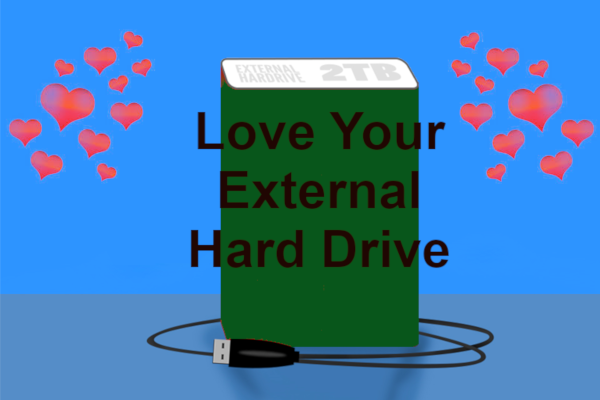
External hard drives play a variety of roles and are the goto device for a lot of backups. As such it pays to take good care of these easily breakable devices and this blog article provides some great hints and tips.
1. Do not bang or knock the drive.
Depending on the type of drive you have, impact can damage it. The hard drive’s mechanical drives work a little like a record player with a little needle reading the data. Any sort of bump or knock can move the needle out of alignment and if the drive is powered on even more damage can occur. Note, you don’t have to worry about this with a Solid State Drive (SSD) as there are no moving parts – but still keep knocks and bumps to a minimum.
2. Always go through the steps to eject the drive.
Yes we are all in a hurry at times, but always take the time to remove or eject the hard drive from your computer before physically unplugging it. On Windows, you’ll usually right click on the drive and press Eject. On a Mac, you can drag the drive icon to the recycle bin (which changes to an eject button). Never unplug the drive while moving data to or from the hard drive unless you want to risk data corruption.
3. Do not pull on the cable.
The connector port can be damaged with a hard or sideways yank on its USB plug. Remove the device cable with a gentle pull. It is always best to unplug the drive cable when it is not in use. Then, when you are reconnecting the external drive, inspect the connector before plugging the cable back in. Look for any damage, debris or corrosion to help maximize the device’s life.
4. Don’t suffocate the drive.
After prolonged usage devices get hot. As such don’t immediately store it away in a bag or tight space. Give it some time to cool off first.
When it is is use, keep the drive’s vents clear of other objects so that it has some airflow and keep it on a flat, level surface. Avoid placing it on any type of fabric (eg paper, towels or other cloth items that could add to its heat levels) or covering it.
5. Watch out for liquids.
Yes i know, you’re probably not going to deliberately drop it in water but beware of where you place the drive when transporting them. I have seen issues where people have placed them in bags next to bottles of water or other liquids and their lids have not been properly secured.
6. Don’t overload the drive.
You can extend an external drives fitness by avoiding filling it with unneeded files and folders. Remove all unwanted or unused files or programs to avoid unnecessary wear and tear. By keeping only essentials on the drive and discarding the rest you can keep your drive healthy longer.
7. Don’t expect immortality or invincibility.
As with most things a hard drive isn’t going to last forever. They can fail, get misplaced or stolen. Don’t let one external hard drive be the only place you are backing up your data to. Have a backup on your computer, on a few external drives and also a copy in the cloud.
If you need help deciding on the best hard drive for your needs, give us a call on 08 8326 4364 or
su*****@dp*********.au
.

thanks for sharing david, sucsess